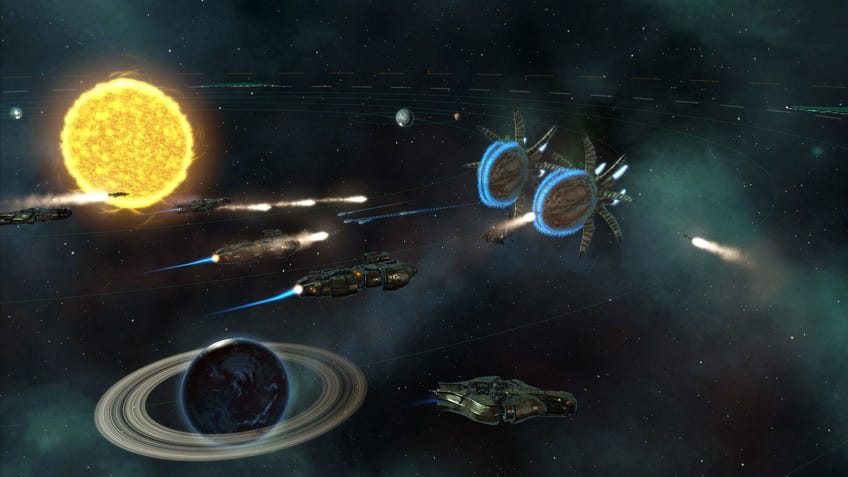Stellaris: Infinite Legacy board game comes to Kickstarter this month, clarifies legacy mechanic
Adapting the PC sci-fi strategy title.
Stellaris: Infinite Legacy, an upcoming board game adaptation of the sprawling 4X video game, will be launching a Kickstarter campaign on March 11th, according to Academy Games CEO Uwe Eickert.
Eickert shared a number of new details about Stellaris: Infinite Legacy in the BoardGameGeek forum, including that Academy Games has been working with video game publisher Paradox Interactive for two years on the tabletop translation. The current iteration veered away from becoming a “flashy miniatures game”, according to Eickert, instead highlighting player choice in the development and exploration of each player’s chosen faction.
Lovers of spacecraft need not despair: he later clarified that the box would still contain plenty of miniature vessels and other technological marvels.
Like the PC game, Stellaris: Infinite Legacy puts players in control of a space-faring civilisation, charting their climb from fresh actors on the galactic stage to potential rulers or fabled explorers of the dark edges of the known universe. Two to four players (up to six with the planned expansion) engage in four main modes of interaction - explore, expand, exploit and exterminate - among different sectors of space in order to collect the resources and technology necessary to extend their reach to distant stars.
The board game boasts a tight two-hour session length, telling an emergent story through randomised event cards and the outcome of interactions between both player factions and the multitude of sentient races populating nearby worlds. Players can choose to subjugate with an iron fist, stripmine every world they meet to fuel their conquest or leave a path of governance and cooperation through mutual benefit.
Every path will require hard decisions and the constant search for better, more efficient technology to bridge the abyss between habitable space, and sometimes the actions of another player will force violence as the only solution.
“It will be what every fan of Stellaris wants,” Eickert said. “Every decision you make radiates forward and changes/affects your future, that of your opponents, and the universe.”
Much of the new information comes from a forum post in which fans discussed what kind of legacy board game experience Stellaris might deliver. Past entries in the genre ask players to destroy or permanently alter components through the course of play to reflect irrevocable decisions or changes to the board state going forward. Newer titles have begun eschewing this practice, such as Fractal: Beyond the Void, allowing groups to preserve their purchase for future games.

Eickert said the studio’s “Infinite Legacy system” will indelibly mark player-controlled factions, altering how they interact with NPCs and respond to galactic threats.
“For example, if you destroy a planet, you could be marked with a key that will make future contacts with other civilisations very difficult, since the word of our [sic] actions may have gotten out,” Eickert said. “But then you may take a future action that pins the blame on another civilisation, again altering the story line and emanating game play.”
He claims this system of remembering past interactions allows for a huge number of potential narratives to emerge through play without having to destroy anything inside the box.
The Kickstarter campaign for Stellaris: Infinite Legacy will launch on March 11th, offering more details on pricing and components at that time.


